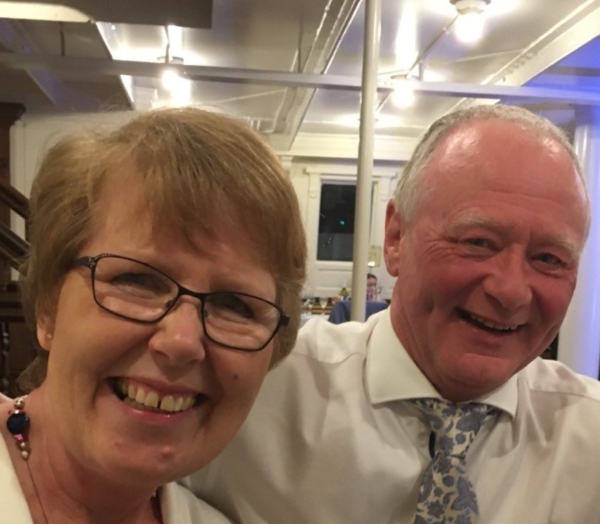
Adele Walker from Kesh, County Fermanagh, was 55 when she had her first stroke in 2017. It was to be the first of five such attacks within just five years. In that time, Adele has been through 3 full strokes and 2 Transient Ischemic Attacks , also known as a TIA or mini stroke, most likely caused by radiotherapy she had been receiving for a brain tumour in 2000.
Adele says, “Due to my stroke, walking is very difficult. I can’t walk alone unaided and need my mobility scooter to get around. My right side is weaker, and I had to relearn to write with my left hand. Speech would have also been difficult at times, but I have overcome that.”
Adele was contacted by Northern Ireland Chest Heart and Stroke’s Family Support Service and began attending the charity’s PREP programme (Post Rehab Exercise Programme). This service is available to provide additional support for stroke survivors after their statutory rehab has ended, to help individuals to rebuild their life and gain confidence following a stroke through a combination of education and physio-developed exercises.
Adele has taken part in the programme three times and went on to attend the charity’s Stroke Walking Group which takes place at Enniskillen Castle weekly.
Adele says, “Only for the programme, I wouldn’t get out as much and it’s always good fun. I really enjoy it. It’s as much about the social aspect as the exercise. You get encouragement and the group is very supportive. PREP was also brilliant – it really helped with my strength and mobility.”
Adele’s husband Mervyn, who also lives with heart disease, has also become a member of the Walking Group. Mervyn says, “I have to say Norma from NI Chest Heart and Stroke who facilitates the group and the volunteers are first class. It really is brilliant, we have good craic and you always come away with a smile on your face.
What advice would Adele give to someone dealing with a stroke? “Don’t give into it - do the things you can do and learn to do the things you can’t. Take another way around or find a different way of doing things.”
Mervyn adds, “If you can try and join a group and meet other people – it’s so important. We’ve got a lot out of it.”
